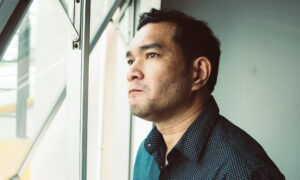Another Feminist Victory: Back to Winner-Takes-All Custody Battles
Commentary Last week, a television crew from the Japanese public broadcaster came to Sydney to interview family law specialist Justin Dowd, former president of the New South Wales (NSW) Law Society. Japan is considering moving away from mum-custody towards “joint parental authority”,—which recognizes that it’s in the children’s best interests to have both mum and dad remain involved in their care. The Japanese crew came to Australia because they acknowledged this country as one of the world leaders in encouraging separated parents to share decisions about raising their kids. That achievement stems from former Prime Minister John Howard’s path-breaking 2006 reforms promoting “equal shared parental responsibility,” which resulted in a significant increase in care from dads, more shared care, better relations between parents, and less litigation (pdf). The result was improved children’s well-being, according to UNSW research (pdf), and the reforms were “overwhelmingly supported by parents, legal professionals, and family relationship service professionals,” said the Australian Institute of Family Studies. Yet Justin Dowd had to tell the Japanese crew that it was all now at risk. The Labor government has just announced draft legislation that will take Australia back to the dark ages of the winner-takes-all custody model. “The Albanese government went back to the future this week,” pronounced the Australian Financial Review (AFR), spelling out the proposed laws that would end any notion of shared parental responsibility, shifting the power in divorce battles firmly back into women’s hands. A two-parent household provides the best home environment for children. (Robert Kneschke/Shutterstock) Where’s the mandate for this unheralded political act which will undermine the welfare of children, ramp up hostility between parents, and swell the coffers of lawyers who will benefit from the appalling fallout? Back in 2007, I was approached by a retiring family court judge, keen to enlighten me on how the family court had gone astray (pdf). The problem? “The woman has had all the power, the man almost none.” In the judge’s view, children missed vital contact with both parents due to decisions to award sole custody to the primary carer. “The custodial parent has been all-powerful. She—it’s usually she—has had the power to regulate access, sometimes regardless of court orders. She’s had complete authority to live anywhere, with the child, that she desires. The power to determine the child’s school, church, decisions about day-to-day living, and the power to get a greater slice of the wedding cake. More often than not, that power is exercised unreasonably.” Erasing Dads, Costing Children’s Rights The Howard reforms very effectively eroded that power, and ever since, feminists have worked feverishly to get it back—regardless of the cost to children. Now comes their reward for marshalling the women’s vote to help Labor regain government. According to the bright new world of family law being promised by the Albanese government, the following will no longer be deemed essential in making decisions about children’s care: Ensuring children benefit from meaningful involvement with both parents. Children’s right to know and be cared for by both parents. Children have the right to spend regular time with parents and other significant people like grandparents. Parents jointly sharing duties and responsibilities for the kids’ care and development. All gone. All the language that provided the scaffolding that enabled children to have divorced dads remain part of their lives is being ripped out of the legislation. The AFR headline said it all: “Time’s up for ‘equal rights’ in court custody battles.” The figure of a nuclear family. (Africa Studio/ShutterStock) Family law professor Patrick Parkinson, who advised the Howard government when the 2006 reforms were introduced, warns that dads will be “cut out” by the proposed family law changes. Parkinson has produced a detailed submission exposing the flaws in the proposed changes. “Under the guise of simplification, it actually involves radical change and radical reversal,” Parkinson says, pointing out that the government is misleading the public in claiming support from various public inquiries for this move. Labor’s Attorney-General, Mark Dreyfus, is proposing not only to remove “equal shared parental responsibility” from the act but the requirement that courts consider equal time or substantial/significant time as a possible parenting option. Now the first consideration of family law will be promoting safety for the child or carers. That’s hardly a surprise. Feminists have been using the violence card to undermine fathers’ contact with their children since the 2006 laws were first introduced, with constant claims about violent dads putting children at risk. “Any reform of the law needs to be more sophisticated and nuanced than to be premised on the assumptio

Commentary
Last week, a television crew from the Japanese public broadcaster came to Sydney to interview family law specialist Justin Dowd, former president of the New South Wales (NSW) Law Society. Japan is considering moving away from mum-custody towards “joint parental authority”,—which recognizes that it’s in the children’s best interests to have both mum and dad remain involved in their care.
The Japanese crew came to Australia because they acknowledged this country as one of the world leaders in encouraging separated parents to share decisions about raising their kids.
That achievement stems from former Prime Minister John Howard’s path-breaking 2006 reforms promoting “equal shared parental responsibility,” which resulted in a significant increase in care from dads, more shared care, better relations between parents, and less litigation (pdf).
The result was improved children’s well-being, according to UNSW research (pdf), and the reforms were “overwhelmingly supported by parents, legal professionals, and family relationship service professionals,” said the Australian Institute of Family Studies.
Yet Justin Dowd had to tell the Japanese crew that it was all now at risk. The Labor government has just announced draft legislation that will take Australia back to the dark ages of the winner-takes-all custody model.
“The Albanese government went back to the future this week,” pronounced the Australian Financial Review (AFR), spelling out the proposed laws that would end any notion of shared parental responsibility, shifting the power in divorce battles firmly back into women’s hands.

Where’s the mandate for this unheralded political act which will undermine the welfare of children, ramp up hostility between parents, and swell the coffers of lawyers who will benefit from the appalling fallout?
Back in 2007, I was approached by a retiring family court judge, keen to enlighten me on how the family court had gone astray (pdf).
The problem? “The woman has had all the power, the man almost none.”
In the judge’s view, children missed vital contact with both parents due to decisions to award sole custody to the primary carer.
“The custodial parent has been all-powerful. She—it’s usually she—has had the power to regulate access, sometimes regardless of court orders. She’s had complete authority to live anywhere, with the child, that she desires. The power to determine the child’s school, church, decisions about day-to-day living, and the power to get a greater slice of the wedding cake. More often than not, that power is exercised unreasonably.”
Erasing Dads, Costing Children’s Rights
The Howard reforms very effectively eroded that power, and ever since, feminists have worked feverishly to get it back—regardless of the cost to children.
Now comes their reward for marshalling the women’s vote to help Labor regain government.
According to the bright new world of family law being promised by the Albanese government, the following will no longer be deemed essential in making decisions about children’s care:
- Ensuring children benefit from meaningful involvement with both parents.
- Children’s right to know and be cared for by both parents.
- Children have the right to spend regular time with parents and other significant people like grandparents.
- Parents jointly sharing duties and responsibilities for the kids’ care and development.
All gone. All the language that provided the scaffolding that enabled children to have divorced dads remain part of their lives is being ripped out of the legislation.
The AFR headline said it all: “Time’s up for ‘equal rights’ in court custody battles.”

Family law professor Patrick Parkinson, who advised the Howard government when the 2006 reforms were introduced, warns that dads will be “cut out” by the proposed family law changes. Parkinson has produced a detailed submission exposing the flaws in the proposed changes.
“Under the guise of simplification, it actually involves radical change and radical reversal,” Parkinson says, pointing out that the government is misleading the public in claiming support from various public inquiries for this move.
Labor’s Attorney-General, Mark Dreyfus, is proposing not only to remove “equal shared parental responsibility” from the act but the requirement that courts consider equal time or substantial/significant time as a possible parenting option.
Now the first consideration of family law will be promoting safety for the child or carers. That’s hardly a surprise. Feminists have been using the violence card to undermine fathers’ contact with their children since the 2006 laws were first introduced, with constant claims about violent dads putting children at risk.
“Any reform of the law needs to be more sophisticated and nuanced than to be premised on the assumption that almost all perpetrators are male and almost all victims are female,” argues Parkinson, yet this is precisely the main thrust of Labor’s proposed new family law.
It’s another superb victory for the feminists, one more achievement for their mighty domestic violence juggernaut, which already works a treat stacking the family law system to favour women.
Currently, all it takes is one vague claim that violence could occur for dad to be removed from the home, denied contact with children, and, if he’s lucky, end up paying big money to see his children in our hellish supervised contact services. And mum gains all the benefits and supports that come with victim status.
We Need to Stand Up
Labor’s latest move didn’t surprise me—they have form. I watched in horror when Labor regained power in 2007 and immediately appointed a fierce critic of shared custody, psychologist Jennifer McIntosh, to study overnight care by dads of infants and toddlers.
Her devastating research results came to be used to deny dads overnight care of young children, not only in Australia but across the world, before a team of international experts eventually denounced her research.
Phillip Ruddock, the Attorney General who implemented the Howard government reforms, pointed out at the time that Labor has always been keen to wind back efforts to promote divorced dads’ involvement with children.
“They’ve long been captured by the female lobby determined to retain sole control over their children.”
Ordinary Australians must stand up and prevent this attack on children’s right to be cared for by both parents. We need to convince the politicians currently basking in feminist accolades that we are not letting them slip this one through.
Make submissions to the Attorney-General’s Department inquiry, talk to your MPs, and do everything possible to promote public discussion of this vital issue.
We can’t afford to sit back and let them get away with unwinding the legal framework that did so much to improve the lives of fathers and their children.
Views expressed in this article are the opinions of the author and do not necessarily reflect the views of The Epoch Times.












